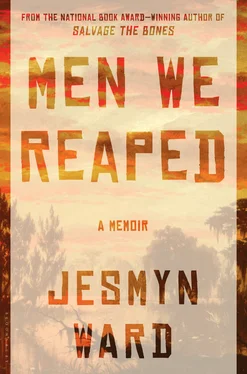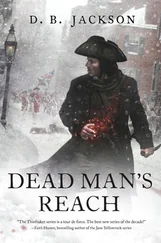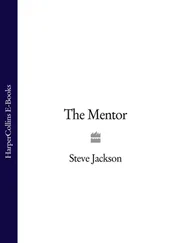“I can’t do it, Mimi,” C. J. said, walking to the bleachers. He said Mimi but it swung off his tongue before jerking short: it sounded like May-me . He and his closest cousin on Daddy’s side of the family, Mario, were the only two people who said my name like that. “I can’t.” He laughed, shook his head, sweat streaming down his face, his hair turning wiry and golden at the root, giving him the blond halo Joshua’d had when we were children.
“Shit, you jump high enough,” I said.
“You got it?” he asked, motioning toward the camera.
“I hope,” I said.
C. J. was fourteen when he and Charine began dating. He charmed her into it. There was something physically appealing in him: he was so short, so thinly muscled, his body performed magic for him. She and C. J. felt physically well matched, like a team. They didn’t endure the lopsidedness that gendered differences in size and muscle could foster. They were cousins, which means many people, including some of our aunts, his mother, and my mother, hated that they were dating. But Charine didn’t care, and neither did C. J. Cousins dated, had children, and married all the time in DeLisle and Pass Christian. They had for generations. In such small towns, in communities confined by race and class, this was inevitable. Charine loved C. J., and that’s what mattered above all else.
From the beginning, Charine and C. J. were inseparable, which was only possible because C. J. was a nomad. He had a room with a twin bed in his mother’s house in Pass Christian, but he rarely stayed there. Part of the roof and the ceiling in his room were caved in, and the floor and bed were covered in boxes of things that weren’t his. When he was home, C. J. slept in the back living room. This room held a sofa and a little TV. He folded his clothes and stacked them on the back of the sofa, the television. He put small pictures, photos Charine took from me when I developed my film, of him and Charine and his cousins, on a side table. The door into the room was open to the kitchen and the rest of the house. His mother was a single mother to two children, C. J. and his much younger sister, and had never married either of their fathers. She worked hard to provide a home for her children, pushing against all the constraints and limitations of who she was and where she lived. Perhaps C. J. felt like he was a burden; perhaps this is why he spent months living in other places, sleeping on other couches.
When he wasn’t living with his mother, he would sometimes live with his father in DeLisle, along with his father’s girlfriend and her daughters. His father tried to integrate C. J. into his new family, gave him a car, worked on it with him to get it running, but it was never fixed. When he wasn’t living with his father or his mother, he slept at our cousin Duck’s house, who was Joshua’s best friend. He slept in Duck’s room, at the front of the house; Duck’s mother didn’t mind him staying there because C. J. was family. Children moved from family to family in DeLisle and Pass Christian through the decades: women in my great-grandmother’s generation would sometimes give newborn children to childless couples after having five or ten or fourteen, and when children were older, they would often move out of the family home and live with different relatives. Sometimes they were driven away by their parents, and other times they were touched by the urge to wander. Here, family has always been a mutable concept. Sometimes it encompasses an entire community, which meant that C. J. also slept on the sofa in Rob’s living room and the sofa in Pot’s living room, though he was not related to them. At Duck’s house, C. J. wore the same clothes for a few days in a row, and sat sleepily picking out his braids in the middle, hottest part of the day on the roots of an ancient oak tree at the corner of Hill Road and St. Stephen’s. It was common knowledge that he was sitting on those massive roots waiting for his small clientele to show up so he could sell them drugs. I, like many others in the neighborhood, judged him for it. What I did not know at the time was that he hated sitting on that tree, that he wanted more for himself, but he didn’t know how to get it.
When C. J. was seventeen, he dropped out of high school. School had bored and frustrated him simultaneously, and he left after ninth grade. I do not know exactly why, but I can imagine that he felt ignored and unremarkable in the classroom, yet another body crowding the school. He was not an academic standout, and he didn’t like playing organized sports, even though he had the physical talent for it. The fact that he was a Black male barely scraping by in his classes meant he was seen as a problem. And the school administration at the time solved the problem of the Black male by practicing a kind of benign neglect. Years later, that benign neglect would turn malignant and would involve illegal strip searches of middle schoolers accused of drug dealing, typing these same students as troublemakers, laying a thick paper trail of imagined or real discipline offenses, and once the paper trail grew thick enough, kicking out the students who endangered the blue-ribbon rating with lackluster grades and test scores.
Sometimes C. J. followed Charine to Gulfport and stayed with her at my father’s rented house in Gaston Point. C. J. and Charine wandered the streets of Gaston Point wearing basketball shorts and white wifebeaters under long white T-shirts. Both of them dressed like boys. They walked to the stores for bread, for milk, for lunch meat before returning to my father’s house. They ate, watching movies and hiding from the heat. Sometimes in the cooler evening, C. J. would lift weights on the rickety weight bench my father had erected in the front yard.
On one particular hot summer day, one in a seemingly endless procession, C. J. and Charine and our cousin walked to the store for ice and Popsicles. On their way back, they heard a bark: breathy, tiny.
“You heard that?” Charine said.
“There,” C. J. said, and pointed at the porch of a house they were passing, which was bordered by an aluminum fence.
“Y’all want it?” our cousin asked.
On the narrow, open porch of the house, a pit bull puppy sat, ears wide and soft as houseplant leaves, her feet the biggest thing on her. She scooted across the porch toward them, barking again, throwing her head up in the air with each sound, as if she had to use her full weight to toss it out. She was feisty. They liked her.
“Come on,” C. J. said, and he vaulted over the low fence, scooped up the puppy, and carried her back to Charine, who opened her neon orange book bag and let them slide the puppy inside next to the Popsicles. They ran back to my father’s rental house and unpacked the dog instead of groceries.
“It was ours,” Charine said later. “It was like our baby.”
When I came home from Michigan during summers and winter breaks, I corralled Charine into spending time with me. Charine was the last of my mother’s children who still lived in her house, so even though she was eight years younger than me, I made her my best friend. She usually invited C. J. along, and then we usually picked up two or three people from the neighborhood. I dragged them to the movies, paid their way, made them watch things like Lord of the Rings , and then afterward we’d all sneak into another movie, leaving the theater four hours after we entered it, queasy with buttered popcorn. On Fridays and Saturdays, we went out to Illusions.
In summer 2003, we piled into my car, Charine and Nerissa and C. J. and me, and met up with Nerissa’s friend at a hotel on the beach near Illusions. He’d been renting a suite for a week. We had no idea why he’d been renting such an expensive suite for so long, since he had a house: I assumed he rented it because he could, because he wanted to brag about his wealth, which he’d gained by selling dope. It was an unspoken display of his status. Once there, we sat in my car and got high. The Gulf water, black in the night, rolled inexorably in. We felt good. We watched the parking lot of the nightclub, the cars moving like a current past one another, people swarming, preening. The bass from the club called out, and the bass from the cars answered. When we went into the hotel room, C. J. sat on the sofa. Charine sat on one of C. J.’s legs, and I sat on his other leg. I’d never sat on C. J.’s lap before: even in rest, his muscles were hard, and suddenly I felt bad for sitting on him, for bearing down on his small frame with my weight, so I stood.
Читать дальше












